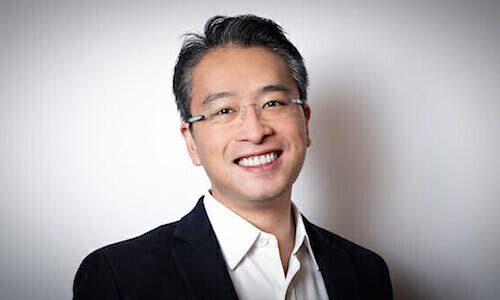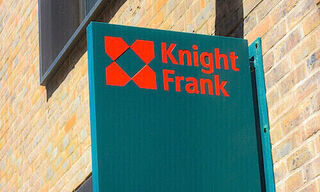BIL Suisse targets $11 billion in assets under management. «We’d like to reach it organically, but we don’t rule out acquiring another financial firm,» says CEO Hans-Peter Borgh, the bank's CEO, in an interview with finews.asia.
Hans-Peter Borgh, how does the bank cope in the midst of U.S.-Chinese tensions?
Personally, I find the situation as unsettling as anyone else does. Certainly, the geopolitical situation is a lot more complex than it was – we see this manifesting the most in the U.S.-China trade conflict.
I do think that Europe and of course Switzerland as well can play an important role in the saber-rattling of major powers. It’s all the more important to maintain good relations with both sides in this context.
Will the new U.S. administration defuse the tension?
I’m not a political scientist, but I am optimistic. Changes are certainly good to lay a new basis for the relations, and that seems to be the case here. I don’t rule out that the world could really benefit from this new start.
The recent siege on America’s capitol overshadows Hong Kong, where authorities arrested more than 50 pro-democracy activists. What does the future look like for Hong Kong’s financial center?
It will continue to play an important and useful role, and remain one of the global financial centers. It compares well with the traditions and legacy of Switzerland as a financial center. Hong Kong’s tradition isn’t as long, but similar – and one which China can benefit from.
«I wouldn’t rule out moving again – including to China»
Equally, Hong Kong will benefit from an increasingly strong integration of the domestic Chinese market. The territory will also play a key role in the so-called greater bay area with Shenzhen and Macau.
You used to live and work in Hong Kong. Would you still take a job like that now?
Absolutely. I just moved to Switzerland from Luxembourg about one year ago, but I wouldn’t rule out moving again – including to China.
Will banks still exist in ten years' time?
Yes, even in a hundred years, just as they have existed in the past. But they will just look different.
How different?
Today, there is a constant talk of digitization. But digitization – for all its merits – is no substitute for what we bankers do. Of course, many services can be digitized, which radically changes our work and demands enormous adaptability, which ultimately makes the difference between success and failure. But this is nothing new.
«Not everything can be done electronically, especially as the world becomes more and more complex»
In this respect, there will always be a need – in the sense of traditional merchant banking as it originated in England – for service and consulting in financial matters. Especially for entrepreneurs. The need for capital remains, and intermediation is the task of banks to ultimately make ideas, dreams and business models possible.
Not everything can be done electronically, especially as the world becomes increasingly complex. The bank retains its role as a financial intermediary. Not everything can be shifted to a platform. In this respect, I am not pessimistic. But we have to remain open to the changes that are coming our way.
How do you remember 2020?
Besides corona or the U.S. elections, I’ll remember hiring more than 40 new employees last year as part of restructuring BIL Suisse. We’re excited about the huge opportunity before us, to expand our business out of Switzerland.
You also bid farewell to at least that number: you now employ fewer people than before.
Yes, and I don’t want to sugarcoat that. We restructured the bank and shifted different activities from Geneva to Zurich, which led to some people leaving. In all, we replaced roughly half of our staff.
BIL’s owners are Chinese – does this present any difficulty finding staff here in Europe, especially because for some COVID-19 is associated with China?
Many talents are curious and interested in our extensive history and tradition. The bank was founded in 1856. The new shareholders provide an element of the «new world» – including additional perspective and investment possibilities.
«I like to say we have European roots, Swiss traditions, and Far East expertise»
This made it attractive for many candidates – a smaller, more familiar organization here in Switzerland with an entrepreneurial approach. I like to say we have European roots, Swiss traditions, and Far East expertise – that makes the whole thing interesting.
Are you still hiring?
Yes. We’re looking for at least ten to 15 private bankers.
What sort of job profile?
BIL Suisse mainly looked after European clientele in the past, which we’ll continue to do – especially entrepreneurs and their families. But since we reorganization under our new main shareholder, we have a stronger focus on so-called new markets like Eastern Europe, the Middle East, Asia and China in particular.
«We see the share of clients outside of Europe growing significantly in the coming years»
So we’re looking for employees and teams who are active and have relationships in these markets. In terms of clients, we’re looking for wealthy entrepreneurs with cross-border banking and business relationships.
What’s your client mix one year after the reorganization?
Roughly half our clientele is European, the other half the Middle East, Eastern Europe, and Asia – although the share of Chinese clientele is still very small. The pandemic undoubtedly didn’t help us expand that part of the business, but it is one of our biggest priorities. We see the share of clients outside of Europe growing significantly in the coming years.
How much does BIL Suisse manage?
We are at roughly $4.5 billion and our declared, ambitious goal is $11 billion – it’s not sacrosanct, but a good target.
The number of Swiss banks is dwindling. How does your offering differ from the existing banks?
Besides the traditional management of assets – private banking – we are targeting an entrepreneurial clientele. Wealthy business people who own a firm and are internationally-focused as a family.
«Europe and particularly Switzerland have an enormous pull on many Chinese»
We can offer them know-how in capital markets financing, corporate credit, and advice, and can back it up with our Luxembourg parent’s balance sheet. Beyond that, we have extensive expertise in European real estate, mortgages, and financing which we’re using in our Swiss offering.
Not least, we have ties to Asia and especially China thanks to our majority shareholder’s network. Legend Holdings is invested in many other companies and listings through its various subsidiaries.
Why should a Chinese client choose to bank with BIL in Switzerland?
Europe and particularly Switzerland have an enormous pull on many Chinese. Switzerland stands for stability, experience, and tradition in banking as well as generally for expertise in many sectors – like watch-making.
If this clientele is looking for some peace of mind outside China, Switzerland pops up on the map pretty fast – and Luxembourg. The Grand Duchy enables European access and, like Switzerland, maintains excellent credit ratings. This makes Switzerland and Luxembourg an ideal combination for our clientele of tomorrow.
Do you need an acquisition to get to your target of $11 billion in assets?
We’d like to reach it organically, but we don’t rule out acquiring another financial firm. We have looked at various options and the trend is definitely here to stay – we saw several transactions last year. But supply is still scarce, so we hope that we’ll see more opportunities coming up.
Hans-Peter Borgh has been Group Head International of Banque Internationale à Luxembourg (BIL) and CEO of BIL Suisse since the beginning of 2020. In this role, he is responsible for all activities out of Switzerland, which includes managing activities in China and Dubai. The Dutchman joined BIL in November 2015. Prior to that, he was Chief Commercial Officer for Private Banking Asia & Middle East at ABN Amro. He also started his career in 1997 at ABN Amro, where he held various positions in retail and private banking in Europe, including Switzerland. He also spent two years with ANZ Banking Group as Regional Head Affluent Banking Asia Pacific. He holds a master's degree in business administration.



























